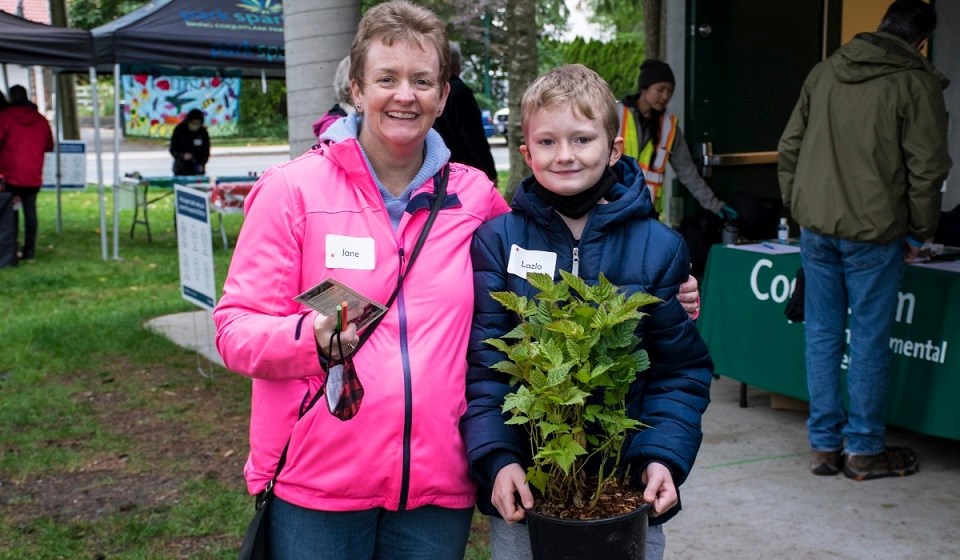Nearly two dozen environment groups are said to have put in long hours year-round to keep Coquitlam as green and clean as can be.
Earlier this month, a handful of the hundreds of volunteers were recognized by the city during its annual Environmental Volunteer Celebration in Mundy Park, which saw roughly 70 people enjoy the outdoors and each other's company — all while following COVID-19 health and safety protocols.
While the event was exclusive to volunteers, it served as a public reminder that everyone has a say in how Coquitlam's surrounding area can be preserved for the future.
"Participants also had the opportunity to learn about the city’s first Environmental Sustainability Plan (ESP), ask questions and provide feedback," explains city environment manager Caresse Selk in a statement today (Oct. 12), noting the volunteers safeguard more than 2,400 acres of natural spaces in Coquitlam, including 109 active parks, 121 km of trails, and many kilometres of creeks, streams and rivers.
"Their invaluable contributions include hands-on field work such as litter cleanups, invasive weed removal, habitat restoration and planting; public education events such as salmon releases; advocacy at all levels of government; and behind-the-scenes activities such as event organizing and fundraising."
Among Coquitlam's new goals in its ESP is a move to cut greenhouse gases (GHG) by 45 per cent by 2030, and to be carbon neutral by 2050 — bringing Coquitlam in line with the United Nations’ Intergovernmental Panel on Climate Change (IPCC), the federal government and Metro Vancouver (the B.C. government has lower targets).
Last year, the city saw an 18 per cent reduction in corporate GHG emissions from civic buildings, its vehicle fleet and operations while the per-capita community GHG emissions have risen one per cent each year since 2007; vehicle transportation and building emissions account for 94 per cent of the community’s carbon pollution.
SUSTAINABILITY SURVEY
A survey that asks for feedback on Coquitlam's current draft of its environmental sustainability plan (ESP) is nearly coming to a close.
Before the end of Friday (Oct. 15), the city is hoping the public can come forward with its ideas, thoughts and input on how they'd like to see the city's environment preserved for the future.
The final plan is set to be presented to city council later this year.
According to Selk, research and analysis began in 2019 for the ESP at a budget of $150,000 listed to begin in the 2022-23 fiscal year.
Based on short-term need, funding and community interest, the plan covers five key topics:
- Climate action
- Built environment
- Waste management
- Water management
- Natural areas
For more information and volunteer opportunities, you're encouraged to visit the city's website.
WANT TO HELP CLEAN UP COQUITLAM'S SPACES?
The City of Coquitlam has posted the following tips on how local residents can keep their green spaces clean and free of toxins:
- Paint yellow fish near catch basins in your neighbourhood with a free City kit (contact [email protected])
- Wash cars on the lawn or at a car wash, and sweep walkways and driveways rather than hosing them down
- Don’t use pesticides in your yard – visit www.coquitlam.ca/pesticides for alternatives
- Fix oil and transmission leaks and recycle all used oil and antifreeze
- Visit www.coquitlam.ca/wastewizard and search for safe disposal locations for chemicals (see www.rcbc.ca for disposal of hot tub and pool chemicals)
- Keep dirt, paint and wet concrete away from storm drains and streams during renovation and construction projects
- Keep pets away from streams – animal waste is polluting, and pets can erode streambanks, cause siltation and disturb fish and wildlife





